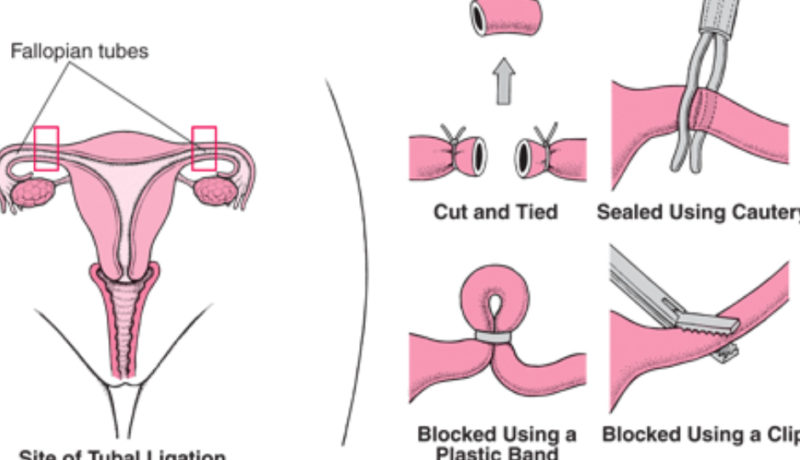Don’t worry if you have been using contraceptives such birth control pills, IUDs or implants, even for a long period of time – this will not cause infertility.
Issues with fertility can be one of the most difficult challenges couples will ever face. It is normal to feel stressed, sad, angry, or even cheated by your own body because we feel that having a family should come naturally. The thought of not being able to have children can make many couples feel like there is something wrong with them.
At Footsteps to fertility Centre in Nairobi, Kenya we are proud to offer an inclusive environment for individuals, families and partners to discuss their needs privately with a doctor, and to obtain the fertility care they deserve.
Methods of Contraception
There are different types of contraceptives. They include;
- Barrier methods.
- Combination hormonal methods.
- Progestin- Only hormonal methods.
- Intrauterine devices (IUDs).
- Sterilization.
Barrier Methods of Contraception
You don’t have to depend on hormonal birth control to prevent pregnancy. You may want to consider barrier method options. This includes contraception like condoms or a diaphragm.
Barrier methods of birth control do require you to use them. They can’t be effective if you forget or don’t place them properly.
However, for those that are consistent and careful, they can provide an effective way to avoid pregnancy, while not interfering with your hormones.
- Cervical Cap – A cervical cap is a thimble-shaped, latex rubber barrier device that fits over the cervix and blocks sperm from entering the uterus. The cap should be about one-third filled with spermicide before inserting. It stays in place by suction.
- The use of condoms
- Sponge – A contraceptive sponge is inserted into the vagina. It has a depression to hold it in place over the cervix. It is less likely to work if a woman has already had a baby.
- The diaphragm – A diaphragm is a rubber, dome-shaped device that is inserted into the vagina and placed over the cervix. It fits into place behind the woman’s pubic bone and has a firm but flexible ring that helps it press against the vaginal walls.
Combination Hormonal Methods
These methods include:
- Contraceptive Pill – The combined contraceptive pill is taken daily. It contains two hormones, estrogen and progestin. The hormones stop the release of the egg, or ovulation. They also make the lining of the uterus thinner.
- Contraceptive Patch – This is a trans-dermal patch that is applied to the skin. It releases synthetic estrogen and progestin hormones. The patch is worn each week for 3 consecutive weeks. No patch is worn in the fourth week, to allow for the menstrual period.
- Vaginal Ring – The contraceptive vaginal ring is a flexible, plastic ring that releases a low dose of progestin and estrogen over 3 weeks. It prevents ovulation and thickens the cervical mucus, so that sperm cannot move easily.
- The Implant – An implant is a rod with a core of progestin, which it releases slowly. It is inserted under the skin of a woman’s upper arm. The implant is effective for up to 4 years, but it can be removed at any time, and then pregnancy is possible.
Progestin-only hormonal methods
The contraceptive injection, or “the shot,” is a progestin-only, long-acting, reversible, birth-control drug. The name of the drug is Depo-Provera, also known as the Depo shot or DMPA.
The shot is injected every 3 months at a doctor’s office. It prevents pregnancy by stopping the woman from releasing an egg.
If you had a Depo-Provera (or DMPA) shot, you should get a cycle after 6 to 12 months of your last injection. However, some women experience disruptions to their fertility for up to 18 months.
Do not panic if you don’t get your fertility back right away after Depo-Provera. It can take up to 22 months—or almost two years—for your cycles to return after the birth control shot. That’s not the average, but it’s possible.
Intrauterine devices (IUDs)
The intrauterine device (IUD), or coil, is a small, flexible T-shaped device that is placed in the uterus. There are two types:
- Copper IUD – It releases copper, and this acts as a spermicide. It can last up to 10 years.
- Hormonal IUD – It contains progestin. It prevents the sperm from reaching and fertilizing the egg by thickening the cervical mucus and thinning the wall of the uterus.
Side Effects of Hormonal Contraceptives

Any kind of hormonal contraceptive that a woman takes may have an impact on her body. Although it may not impact fertility, it may fiddle with the long-term fertility of a woman. Here are some ways in which taking them may negatively impact the long-term fertility of a woman.
Short-Term Side Effects
Hormonal methods of birth control contain artificial progesterone or estrogen and progesterone. They affect the hormone levels in a person’s body, so many people experience side effects shortly after taking them. Other side effects may develop after taking hormones for some time.
Some side effects will go away within several months as the body adjusts to the hormones.
Possible short-term side effects of birth control include bleeding between periods/spotting, headaches, nausea, irritation, vaginal discharge, weight gain, breast tenderness, infections and mood changes.
Long-Term Side Effects
For most people, using hormonal contraceptives for a long time does not cause significant problems.
Many people use hormonal birth control for contraception. But, others take hormonal contraceptives to manage long-term medical conditions such as heavy or painful periods, endometriosis, and menopause symptoms.
Sterilization
Sterilization is a permanent method of birth control. It includes tubal ligation and tubal implant(for females) and vasectomy(for men).
- Tubal ligation – This is a form of female sterilization. The surgeon will cut, block, or burn the fallopian tubes, or a combination of these methods, to seal them and prevent future fertilization.
- Tubal implant – A coil is placed in the female’s fallopian tubes. Tissue grows around it, blocking the tubes. It can take 3 months to work.
- Vasectomy – This is surgery to make a man sterile. The tubes through which sperm pass into the ejaculate are cut or blocked.
Is it safe to use contraceptives indefinitely?
Most people can safely use hormonal contraceptives for many years, provided their fertility specialist has recommended it.
However, many long-term birth control methods contain hormones. This can cause problems depending on a person’s medical history, age, and overall health. Your fertility specialist may advise you to avoid using certain types of birth control.
For example, if a birth control pill causes side effects, you can speak to your fertility specialist to change them until they find the one that works for you.
People with a history of blood clots may prefer progesterone-only birth control pills or the hormone-free IUD.
Does using contraceptives hurt your chances of getting pregnant later?
Your cycles should return within about three months of stopping birth control, if not sooner. You should have a cycle within one to three months of discontinuing most forms of reversible birth control.
If you stopped birth control and haven’t gotten a period yet, you may want to take a pregnancy test first. You can get pregnant the very next month after stopping birth control.
For example, if you have been using the pill for a short or long time you are likely to experience a temporary delay in conception, but this does not affect your chances to fall pregnant.
Fertility is slightly reduced during the first couple of menstrual cycles after stopping the pill, but after that, monthly fertility rates quickly return to their usual level.
For those using other contraceptives such as the Uterine Devices (IUD’s), Implanon and Depo-Provera long-term fertility is maintained. Most contraceptives are associated with a temporary reduction in fertility.
However with the injection of Depo-Provera it takes an average of 9-10 months before ovulation returns and therefore it may take longer before you can fall pregnant. If you want to become pregnant in the next 12 to 18 months, it is recommended that you use a different method of contraception.
Moving From Contraception To Conception
Many women begin using different forms of contraceptives at a very young age and don’t stop until they want to begin trying to conceive. They do not cause infertility, but impacts long-term fertility by “silencing a woman’s biological clock for so long that, in some cases, they forget it’s ticking away”.
In other cases, women ignore or forget they are dealing with a fertility issue because the symptoms have gone away.
If you have been facing problems in conceiving after you stopped taking any form of contraceptives visit our fertility specialist at Footsteps to Fertility Centre in Nairobi, Kenya so that you can be assessed to figure out what may be causing the problem.
We are dedicated to providing exceptional, personalized reproductive and fertility health care for our patients.
To learn more about what options are available to you, please feel free to schedule an appointment below or visit our clinic located at Ralph Bunche Road, Kugeria Court, Suite B9.



